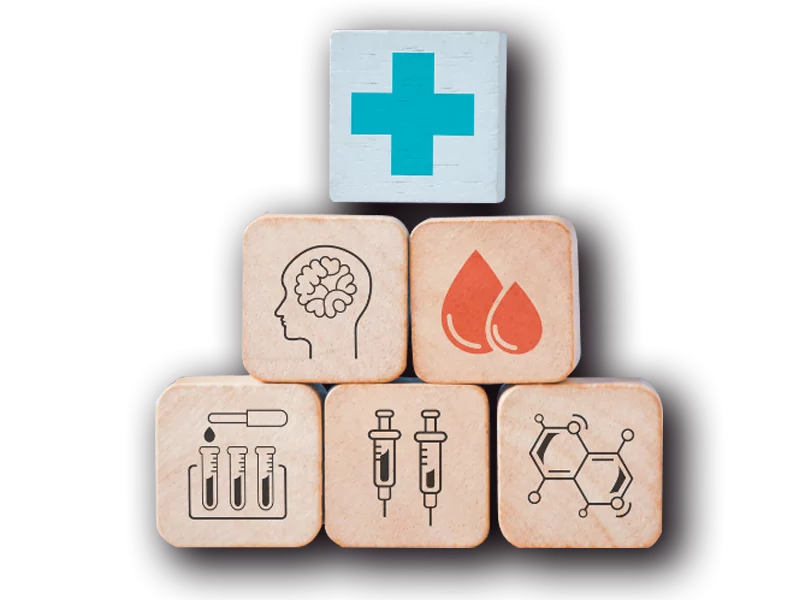Integrative medicine involves attempting to identify and address the root causes of disease in a comprehensive, thorough, individualized, and evidence-based fashion, using means that are direct, effective, and safe. Given that lifestyle factors (e.g., poor diet, physical inactivity, chronic stress, etc) play a key role in the development of many if not most chronic diseases, integrative medicine focuses a great deal on lifestyle modification as a means of preventing, ameliorating, and/or reversing disease. It generally involves combining the use of conventional treatment methods (i.e., prescription medications and procedural interventions) and more ‘natural’ treatment methods (e.g., dietary modification, exercise, stress management, etc), hence the term integrative medicine.

Integrative medicine involves attempting to identify and address the root causes of disease in a comprehensive, thorough, individualized, and evidence-based fashion, using means that are direct, effective, and safe. Given that lifestyle factors (e.g., poor diet, physical inactivity, chronic stress, etc) play a key role in the development of many if not most chronic diseases, integrative medicine focuses a great deal on lifestyle modification as a means of preventing, ameliorating, and/or reversing disease. It generally involves combining the use of conventional treatment methods (i.e., prescription medications and procedural interventions) and more ‘natural’ treatment methods (e.g., dietary modification, exercise, stress management, etc), hence the term integrative medicine.
Integrative medicine involves attempting to identify and address the root causes of disease in a comprehensive, thorough, individualized, and evidence-based fashion, using means that are direct, effective, and safe. Given that lifestyle factors (e.g., poor diet, physical inactivity, chronic stress, etc) play a key role in the development of many if not most chronic diseases, integrative medicine focuses a great deal on lifestyle modification as a means of preventing, ameliorating, and/or reversing disease. It generally involves combining the use of conventional treatment methods (i.e., prescription medications and procedural interventions) and more ‘natural’ treatment methods (e.g., dietary modification, exercise, stress management, etc), hence the term integrative medicine.




The predominant focus of conventional medicine is on the use of medications and procedural interventions. When it comes to acute medical conditions, like fractures and heart attacks, these are most often precisely the treatments that should be employed and are typically sufficient to remedy the issue.
However, the optimal treatment strategy changes when we’re talking about chronic diseases, such as coronary artery disease, obesity, and type 2 diabetes. This is because environmental variables, and lifestyle factors in particular – smoking, excessive alcohol consumption, poor diet, physical inactivity, inadequately managed stress, inadequate and/or poor-quality sleep, and so on – contribute tremendously to the development of many if not most chronic diseases.
While the use of medications can often be very helpful if not essential in managing chronic diseases, some patients don’t see much benefit from the use of medications or, if they do, might experience side effects that make them wonder if, on balance, the medications are worth taking. Perhaps more importantly, no medication or combination of medications can undo the effects of an unhealthy lifestyle no matter how much we might wish this were the case. The end result is that if living as long and as healthy a life is important to you, then optimizing your lifestyle is critical. And so integrative medicine focuses a great deal on lifestyle modification, as well as the judicious use of targeted nutritional supplementation, to comprehensively and thoroughly address the root causes of chronic disease.

The focus of my practice is on putting together highly individualized treatment regimens that can be safely implemented alongside the conventional medical treatments being prescribed by your primary care provider and/or specialist(s), intended not only to help address the medical condition for which you’ve sought treatment, but to improve your overall health, reduce your risk of chronic disease generally, and get you feeling your best.
Functional medicine has become a real buzzword in recent years, with naturopathic doctors, medical doctors, and even pharmacists claiming to practice functional medicine. Functional medicine is a systems biology–based approach that recognizes that a diagnosis can be the result of more than one pathophysiologic mechanism and that a single pathophysiologic mechanism can contribute to a number of different diagnoses. Accordingly, functional medicine is focused on identifying and addressing the root cause(s) of disease. Sound familiar? There is essentially no difference between functional medicine and integrative medicine as I practice it. One could say that I practice integrative medicine (using a blend of conventional medical treatments together with more ‘natural’, lifestyle-based therapeutics) from a functional perspective (making every effort to address root causes to the greatest extent possible).




As much as I wish I could say yes, the reality is that an integrative treatment approach is not suitable for everyone. Integrative medicine involves a predominant focus on lifestyle modification, and this requires that the patient be able and willing to invest time and energy into improving their health. While the rewards are well worth it, some people, for whatever reason, may be unable to make this commitment. If the idea of changing your diet or getting more exercise makes you cringe, it’s likely that an integrative treatment approach isn’t right for you, at least not at this time.
I do not diagnose or treat concerns that are not accepted as legitimate diagnoses by the conventional medical establishment, such as chronic Lyme disease and chronic systemic candidiasis.
For the time being, my practice is virtual only, meaning that appointments are conducted either by online video conference (preferable) or over the phone. If you’re not very tech savvy, don’t let that stop you from booking an appointment. I’m not tech savvy in the least (especially for a millennial), so if I can figure it out, so can you!
